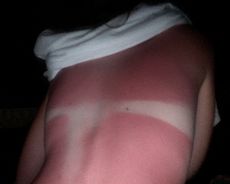 When someone says, “the science isn’t settled yet—it’s too soon to make a decision,” why are we suspicious? Yes, sometimes the science isn’t settled yet—you can pick up any copy of Science or Nature and find scientists debating issues—but I’m not talking about scientists, but rather about people representing commercial interests, who seem to reflexively take the denialist position whenever scientific evidence reflects negatively, or is seen to reflect negatively, on their products.
When someone says, “the science isn’t settled yet—it’s too soon to make a decision,” why are we suspicious? Yes, sometimes the science isn’t settled yet—you can pick up any copy of Science or Nature and find scientists debating issues—but I’m not talking about scientists, but rather about people representing commercial interests, who seem to reflexively take the denialist position whenever scientific evidence reflects negatively, or is seen to reflect negatively, on their products.
Smoking causes cancer? Tobacco manufacturers say the jury is still out. It’s too soon to conclude that warning labels are needed on cigarette packages.
Acid rain? Well, say the lawyers for power plants, there really isn’t any good evidence that burning fossil fuel generates acid rain in the eastern part of the country, damaging lakes and other water sources. No need to require scrubbers on the smokestacks of power generating plants.
DDT? No need to limit this broad-spectrum insecticide, say the pesticide manufacturers. The evidence that it causes thinning of avian eggshells isn’t conclusive yet.
Climate change? Of course, say the gas, oil, and coal producers, the models used to generate the data showing an increase in CO2 and other warming gasses since the Industrial Revolution are unreliable, so there’s no need to discuss carbon-reducing policies such as carbon taxes or cap-and-trade.
So when I saw an article in The New York Times noting that the Surgeon General called for reducing skin cancer incidence, and for warning labels on indoor tanning beds, it was no surprise that the Indoor Tanning Association took a familiar line: “In spite of what the public has been led to believe, there is no data to link moderate nonburning exposure to ultraviolet light and melanoma skin cancer.” The careful wording is itself disingenuous: there are no data to link moderate ingestion of food to obesity, either, but it’s not the moderate ingestion of food or (by definition) moderate exposure of UV light that we should worry about.
I am of European descent. My European skin generates melanin when melanocytes are exposed to UV radiation. The tanned external layer of skin protects the more sensitive lower layers, where skin cancers, including the deadly melanomas, arise. If you have the kind of skin that is often associated with red hair, you may not make enough melanin to protect these lower levels, and it behooves you to cover up. If you live in the tropics or an extremely sunny part of the world like Australia, you should indeed protect your pale skin.
When I was growing up in the 1950s and ’60s, few of us bothered with sunscreen. Just get that first big sunburn of the year, let it peel, and you’d find tan underneath. Then you’d be protected for the rest of the summer. That was really stupid: damaging to the skin, and potentially cancer-causing. But indeed, moderate nonburning exposure to UV almost by definition is not likely to generate skin cancer, though constant and repeated exposure, such as occurs in regular use of a tanning bed, is a matter of concern. And it’s the high rate of the regular use of tanning beds that causes the worry. The Surgeon General says “nearly a third of white women ages 16 to 25 use an indoor tanning bed each year”.
OK, disingenuous weasel-wording aside, what else triggered my flashback to all of these other kinds of denial? Ah yes—predictably, The group said there was "no consensus" among researchers on a link between melanoma and ultraviolet light exposure, either, from the sun or from a tanning bed. "Proponents of sun avoidance always exaggerate the risks of exposure to ultraviolet light in order to get the attention of the public, the media and the government," the association said.
But like evolution and the role of CO2 in warming the planet, the link between UV radiation and skin cancer has been known since the late 19th century, and refined considerably during the 20th. The jury is not still out. It’s not too soon to tell. And notice the second clause in that quote above, how it pivots to demonizing the opposition. The UV-skin cancer mob is just exaggerating the relationship to get publicity, you see.
We’ve seen this from other denialists, too, not just those associated with commercial interests. Proponents of evolution education are regularly accused of promoting an atheist agenda, despite the acceptance of evolution by majorities of Catholics, Jews, and mainstream Protestants. Global warming? Denialists attack the science, but also attack proponents as having ulterior motives—promoting socialism and a powerful central government, undermining American security, and so on—despite the acceptance of the reality of climate change by major corporations and the U.S. armed forces.
So now with tanning bed manufacturers’ pronouncements about UV radiation and skin cancer, we have another example of science denialism in action. In general, whenever you hear “the science is still unsettled,” look closely at who is making the claim. When a commercial entity says “science says our product is completely safe,” look closely there, too. Tobacco manufacturers claimed their scientists had shown that smoking had no ill health effects, and they aren’t the only ones to have misused science to support their commercial interests. Evaluation of claims of harm or lack of harm must come from independent sources. And all of us must exercise our critical thinking skills in making decisions.

